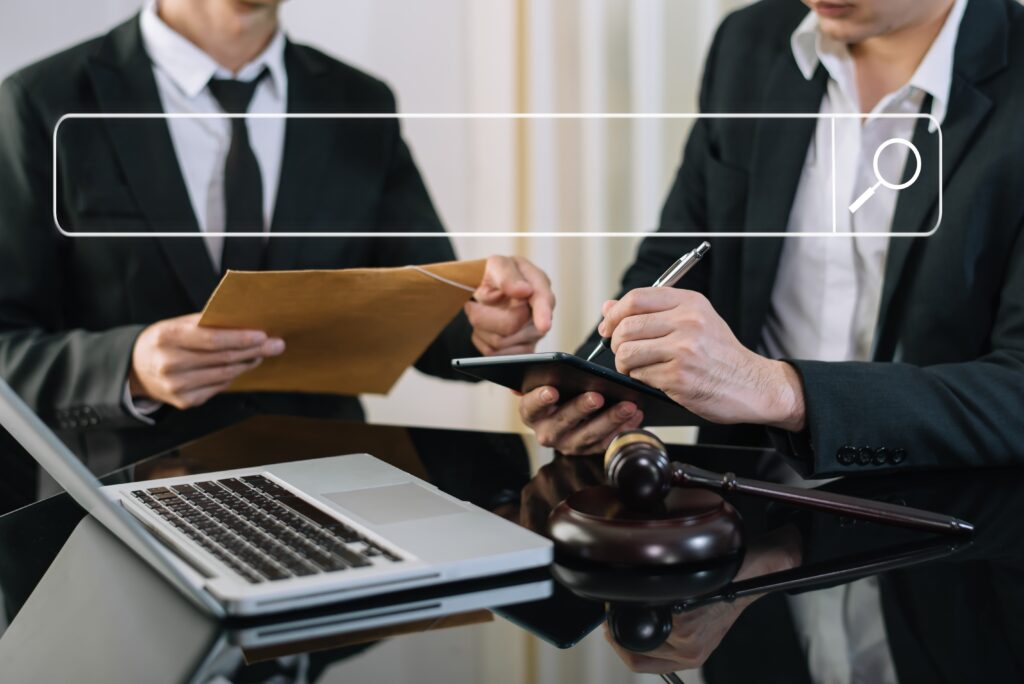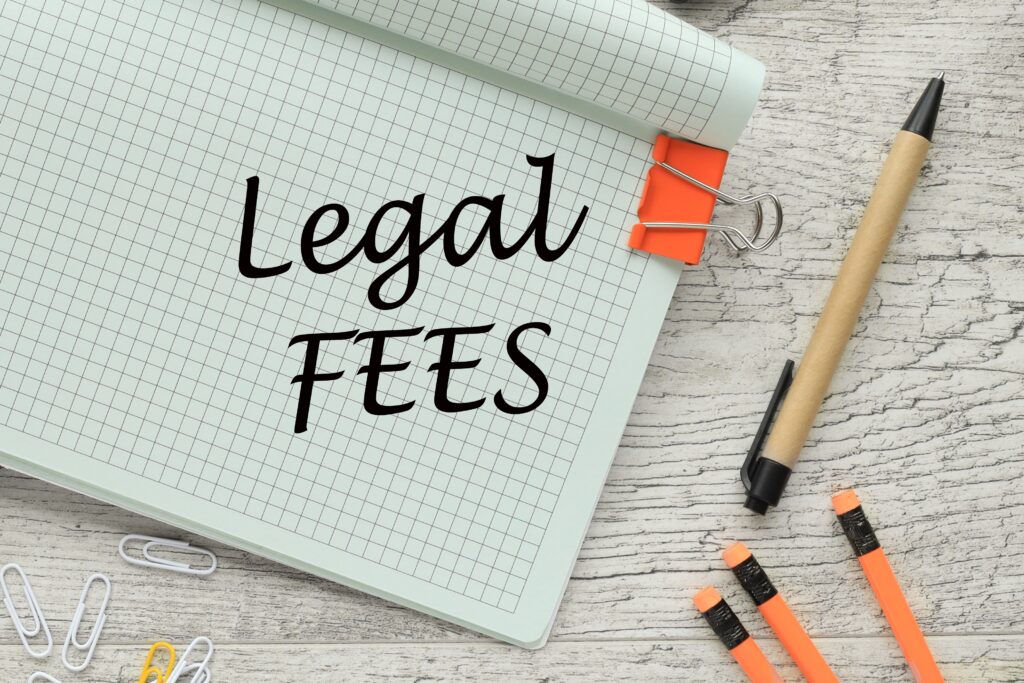If you suffered a severe injury in an accident that wasn't your fault, meet with a qualified personal injury attorney immediately. You want to choose the right lawyer to handle your case—someone experienced, knowledgeable, and who you feel comfortable working with.
To make this decision and get the most out of your initial consultation, here are some important questions to ask a Oakland personal injury attorney at your first meeting:
Table of contents
- What is your background in handling cases similar to mine?
- How will you assess my case?
- Who will be working on my case?
- What is your communication style and approach with clients?
- How much will this cost me, and how are fees structured?
- What is your approach to settlement vs. trial?
- How long do you expect my case to take?
- What is your strategy for my case?
- Call a Car Accident Lawyer to Discuss Your Case
What is your background in handling cases similar to mine?
When meeting with a potential attorney, ask about their background and experience. You want to work with a lawyer who has successfully handled cases similar to yours in the past. Ask how long they have been practicing personal injury law and what types of cases make up most of their work.

For example, if you suffered an injury in a car accident, look for an attorney with extensive experience with car accident claims. They will be well-versed in the specific laws, insurance issues, and common defense tactics involved in these cases.
Some good questions to ask include:
- How long have you been handling personal injury cases?
- What percentage of your practice is devoted to personal injury?
- Have you handled cases with facts similar to mine? What were the outcomes?
- Have you ever taken a case like mine to trial? What was the result?
The answers to these questions will give you a sense of the attorney's relevant experience and track record of success. An experienced personal injury lawyer will have seen cases like yours and know the most effective strategies for recovering maximum compensation.
How will you assess my case?
After asking for some background information, review your case's facts with the attorney and ask for their honest assessment. Most personal injury attorneys offer free initial consultations, and they should give you a preliminary case evaluation based on the information you provide.
Ask the lawyer to walk you through the merits and weaknesses of your case. Based on the details of your accident and injury, what are your chances of receiving compensation for your accident? What are the critical factual and legal issues involved? What potential defenses or obstacles do they see?
An experienced attorney should identify the key liability and damages issues and explain them in plain language. They should give you a realistic assessment of your case's strengths and weaknesses, not just tell you what you want to hear.
Some good questions to ask include:
- What is your initial evaluation of my case based on the facts I've told you?
- What are the likely hurdles and defenses the other side might raise?
- How do you think my own actions may impact the case, for better or worse?
- What are the critical liability issues that will determine the success of my case?
- Roughly what range of compensation do you think my case can potentially yield?
Ensure the lawyer is upfront about your case's challenges and isn't overpromising results. While a good attorney can give you an idea of your case's value based on their experience with similar matters, be wary of anyone making guarantees at a first meeting.
Who will be working on my case?
At your initial consultation, ask about the attorney's caseload and their approach to delegating work. Some personal injury law firms have multiple lawyers collaborating on cases, while others assign one attorney to oversee a case from start to finish.
Ask whether the lawyer you are meeting with will be directly handling your case or if it will be passed off to another attorney at the firm. If other lawyers or staff are involved, ask who they are, their roles, and if you can meet them.
Some attorneys take a team approach, relying on junior associates, paralegals, and case managers to handle much of the day-to-day work. Others prefer to be more hands-on. There's no one right way, but you want to feel comfortable with the lawyer's approach and confident that your case will get appropriate attention.
Questions to ask include:
- Will you be the attorney handling my case personally? Will other lawyers at your firm be involved?
- How much casework will you do versus being delegated to paralegals or junior staff?
- Can I contact one point person with questions about my case? Who will that be?
- How often should I expect updates on my case's progress? Will I be speaking with you or someone else?
Ideally, you want an attorney who will be accessible and attentive to your case. Make sure you understand who will be doing what in your case. At a minimum, insist on an experienced attorney overseeing the process and providing strategic guidance.
What is your communication style and approach with clients?
Communication is key to any good attorney-client relationship. At your first meeting, ask the lawyer about their communication style and what you can expect regarding client service.
You want a lawyer who will keep you updated about developments in your case and quickly respond to your calls and emails. Ask how the attorney typically communicates with clients and how often you can expect to hear from them.
Questions to ask include:
- How will you keep me updated on the progress of my case? Phone calls, emails, letters?
- How quickly do you typically respond to client questions and concerns?
- Will I be hearing from you directly or from a paralegal or assistant?
- What's the best way to reach you if I have questions? Are certain methods better for urgent issues?
- How much input will I have in decision-making versus you making strategic calls?
Communication styles can vary among attorneys. Some are in more frequent contact than others. There's no one right way as long as you feel confident you'll be in the loop.
Ask the lawyer to walk you through a typical case from intake to resolution. Roughly how long do they expect the process to take? What will be required of you along the way?
Make sure the attorney's communication style aligns with your expectations. If you're the type of client who likes frequent updates, say that. If you prefer to give your lawyer space to work, make that clear. The key is that you and your lawyer understand each other's preferences from the start.
How much will this cost me, and how are fees structured?
Don't be shy about bringing up money at your initial consultation. You need to know how much pursuing a personal injury case will cost and how the lawyer's fees and expenses will be structured. Personal injury attorneys typically operate on a contingency fee basis. Their fee is a percent of your settlement or verdict. Ask for details on the attorney's specific fee structure.

Questions to ask include:
- Do you charge a contingency fee or work on an hourly basis? What percentage of my recovery will your fee be?
- If we don't get a recovery, will I owe you anything?
- What other expenses will I be responsible for during the case, like court fees, expert witness fees, etc.?
- If my case is unsuccessful, will I owe you those expenses?
- Do you require any retainer or up-front fees?
- Can you estimate a range of total costs if my case settles versus going to trial?
Before signing a retainer agreement, ensure you understand exactly how fees and costs will work. Have the lawyer walk you through a few hypothetical settlement or verdict amounts and explain how much you will take home after fees and expenses. Get the agreement in writing.
While cost shouldn't be the only factor in your decision, you have a right to understand the financial implications of pursuing a case. Walk away if anything about the fee arrangement seems fishy or too good to be true.
What is your approach to settlement vs. trial?
Most personal injury cases end in settlement, but some do go all the way to trial. At your initial meeting, ask the lawyer about their general approach and philosophy on settling cases versus taking them to trial.
Questions to ask include:
- What is your approach to settling cases vs. going to trial? Do you have a usual method?
- How often do you advise clients to settle vs. litigate? What factors go into that decision?
- What percentage of your cases go to trial? What is your success rate at trial?
- How will you decide whether to recommend settlement or trial in my case?
- Are you willing to take my case to trial if you believe that's in my best interests?
There's no universally right answer here. You want an attorney who approaches each case based on its unique facts and what's best for the client. Generally, a lawyer should be open to fair settlements when they make sense but unafraid to take cases to trial if necessary.
The attorney should explain their decision-making process and the factors they weigh in advising clients to settle or hold out for trial. These factors may include the strength of liability evidence, the severity of damages, the defendant's resources and risk tolerance, and the time and cost of litigation.
Beware attorneys who seem to have a one-size-fits-all approach. Automatically settling most cases can mean leaving money on the table, and taking everything to trial is costly and risky. The right lawyer will give each case an individualized assessment and value having settlement and litigation both in their toolkit.
How long do you expect my case to take?
Ask the attorney to estimate how long they expect your personal injury case to take from beginning to resolution. The exact timeline will depend on many factors - the case's complexity, the severity of your injuries, the cooperativeness of the other party and their insurer, the court's docket, and more. However, an experienced lawyer should give you a general idea of how similar cases have unfolded.
Questions to ask:
- How long do you estimate a case like mine to take from start to finish?
- What are the key factors that can impact the timeline of my case, for better or worse?
- How long does it typically take to complete each phase, like treatment, investigation, negotiation, filing suit, mediation, trial, etc.?
- How backlogged are the courts here? How long does it take to get on the trial docket?
- Do we need to know any deadlines, like a statute of limitations?
- How does the timeline of a case impact strategy? Is there an ideal pace from a tactical perspective?
The lawyer should walk you through the expected progression of your case and each phase's typical duration range. They should explain any critical deadlines, like statutes of limitations for filing your claim. Ask if a speedier resolution might mean compromising on settlement amounts.
Remember that even a very experienced lawyer can't perfectly predict your case's timeline, as many factors are out of their control. But they should provide a general roadmap and keep you updated on where your case stands along the way. You want a lawyer with the resources and commitment to move your case along steadily.
What is your strategy for my case?
Once you've gone over the key facts at your initial meeting, ask the lawyer to explain how they will approach your case. What do they see as the critical next steps? What information do they need to gather? What does their strategic game plan look like?

Questions to ask include:
- Based on what you know so far, what initial strategy do you propose for my case?
- What immediate next steps do you plan to take if I hire you?
- What fact-finding and evidence-gathering needs to happen in a case like this?
- Will expert witnesses be needed? If so, what kind and how will you go about finding them?
- When will you contact the other party/insurer, and how do you approach those conversations?
- How will your strategy differ if my case settles vs. going to trial?
The attorney should explain, in broad strokes, how they will approach building your case, dealing with the other party, and setting you up for success in settlement talks or at trial. This doesn't have to be a fully fleshed-out plan but should demonstrate organized and strategic thinking.
The lawyer should explain key evidence and information they need to gather, whether by accident reconstruction, medical record review, witness interviews, or expert analysis. They should have ideas for identifying and vetting expert witnesses if needed.
Ask how the attorney's strategy will play out in both settlement discussions and at trial. How will they convince claims adjusters or jurors of the severity of your injuries and the other party's liability? The lawyer should outline themes and arguments that can be persuasive in either scenario.
Call a Car Accident Lawyer to Discuss Your Case
Asking these questions at your initial meeting will help you decide if a personal injury attorney is the right fit. You want an Oakland personal injury lawyer who is experienced, strategic, and responsive to your needs. Take advantage of free consultations to interview multiple candidates before choosing one.
If you've suffered an injury in a car accident, call a car accident attorney in Oakland to schedule a free case evaluation.


